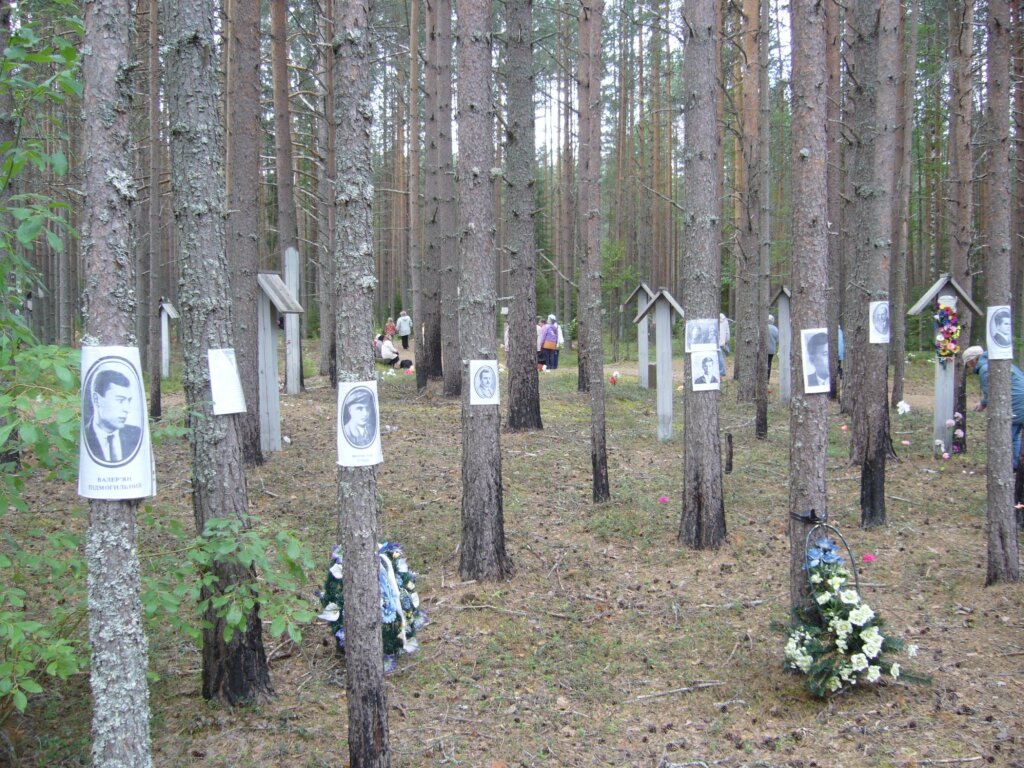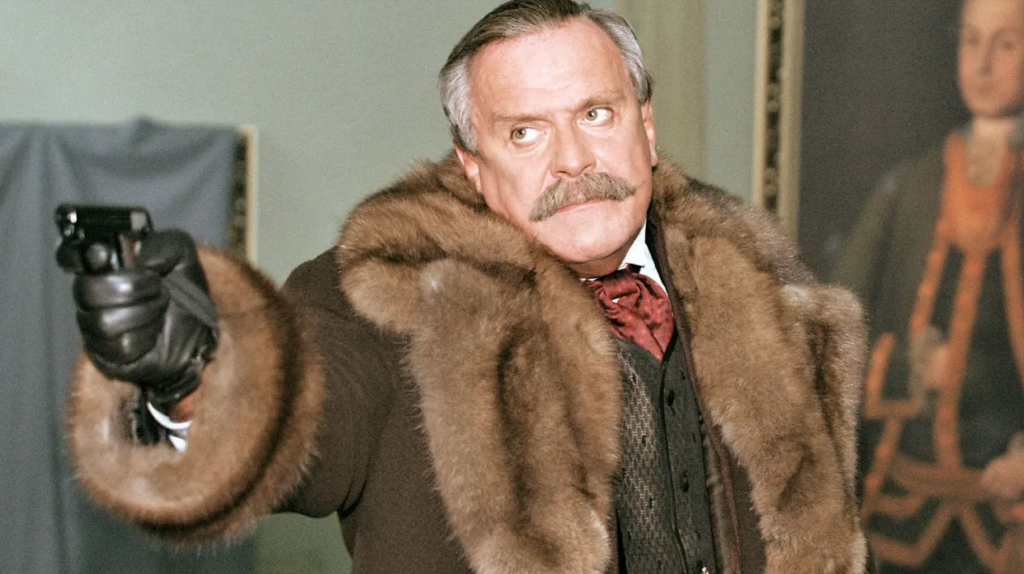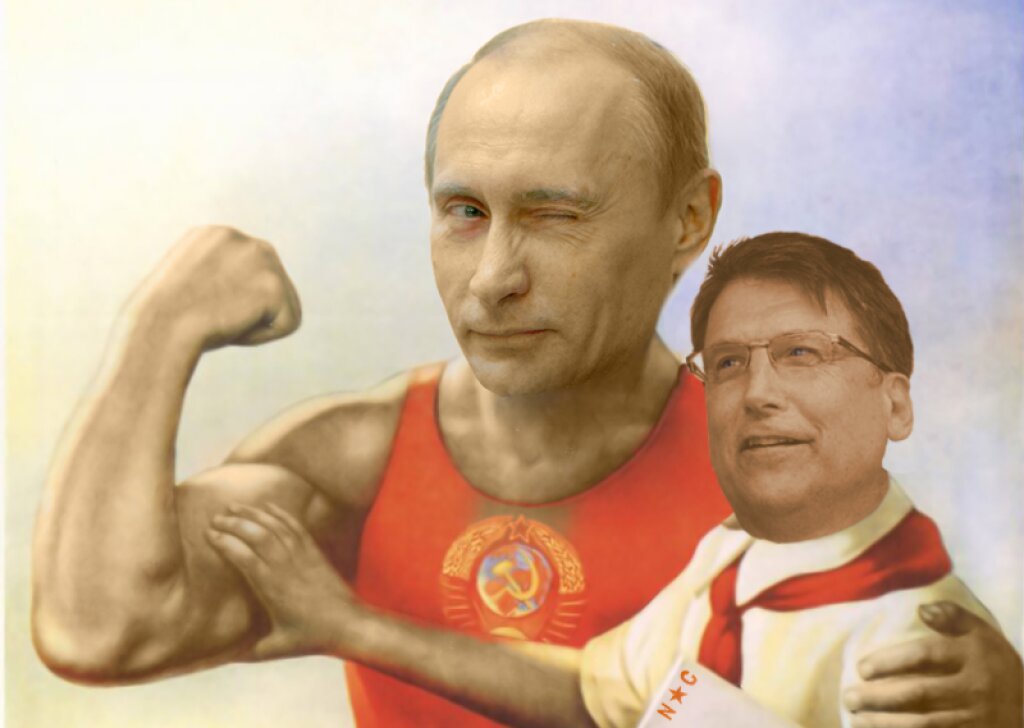This is the second installment in a two-part post. Part I may be found here.
Mark Eliot Nuckols is an independent scholar and a translator for www.watchingamerica.com. He also translates for www.rightsinrussia.org, which is how he became interested in the Dmitriev case.
Historian Yuri Dmitriev’s initial arrest came on December 13, 2016. It was the beginning of a nightmare involving months of pre-trial detention, two psychological examinations, and finally an acquittal – followed by a renewal of the original indictment.
His friends, family, and supporters consider the legal troubles politically motivated. An anonymous leaker provided evidence from the case to a state-run media outlet in an apparent smear campaign. The charge itself harkens back to the Soviet era, when dissidents sometimes faced similar ones: child pornography.
According to Dmitriev’s attorney, someone entered his home and searched his computer two weeks before the arrest, after he’d been summoned to police headquarters and spent four hours there explaining the presence of a firearm in his house. A few days later, authorities claim, they received the anonymous tip that became the basis of the accusations.
The defense insists the pictures in question were part of a health record for Dmitriev's foster daughter, Natalia. Having been adopted himself, Dmitriev took her into his care after his two biological daughters were grown. As she was lagging in physical development, he took photos to document her progress. They are clinical in nature—front, back, right, left—taken at fairly regular intervals from 2009-2012.
Since his initial arrest, Natalia has been placed in the care of a biological grandmother in northern Karelia. Given the sensitive nature of the case involving a minor, the prosecution has commented only minimally on the case. The photos were supposed to be kept under lock and key, sub judice.
But the month after Dmitriev’s arrest, they mysteriously appeared on the state-owned channel Rossiya-24 as part of a segment called “What is Memorial Hiding?” The fourteen-minute story opens with innuendo about the “so-called ‘liberal press’.” It quickly moves on to censored versions of the shots of Natalia, with the comment that they “could only evoke revulsion in a healthy person.” The segment also features a clip of the activist’s August 2014 speech at Samardokh criticizing military action in Ukraine. Most of the broadcast focuses on the activities of the Memorial Society, questioning, among other things, funding from the Soros Foundation.
It is possible that Memorial ran afoul of officialdom by publishing the names of NKVD officers involved in mass killings of 1937-38. Also, Dmitriev and friends, after finding the mass execution site at Sandarmokh, were determined to find the other two missing “quotas” of prisoners transported from Solovki. His ordeal may be intended to discourage anyone from becoming too curious about state crimes of the 1930s. Just last year, Putin complained in an Oliver Stone interview of “excessive demonization of Stalin” being used to discredit Russia and the Soviet Union.
During the trial, even a government-appointed expert panel failed to find a pornographic element to the pictures. At this point, Dmitriev was subjected to a psychiatric assessment – the second since his initial detention – at the Serbsky State Scientific Center for Social and Forensic Psychiatry, which in Soviet days had gained a reputation as an instrument of political punishment.
The verdicts were announced this April 5. The accused was cleared of all counts related to indecencies with a minor, but was convicted of illegally possessing parts of a shotgun – which Dmitriev claims he had taken from some local boys years earlier, for their own safety. Since he had already spent so much time in detention, he was sentenced to only three months’ probation and community service on the firearms charge.
The prosecution, however, appealed the acquittal on the other charges (Russia has no prohibition against double jeopardy), and the Supreme Court of Karelia overturned the city court’s finding, meaning Dmitriev will have to stand trial again.
Curiously, the new indictment came on June 14, the day Russia played against Saudi Arabia in the World Cup opener. Now, unlike the first weeks after his arrest, authorities appear to prefer distracting attention away from the case.
As Anatoly Razumov, director of the Returned Names Center of the Russian National Library told Natalia Shkurenok of Open Democracy, “The investigators and prosecutor’s office were betting that if they could show everyone convincingly that, look, this is the kind of person who’s looking for those killed under Stalin, then everybody would believe them. But it didn’t work! So many different people came out for Yury, they understood the absurdity of the accusations. The authorities didn’t realize whom they’d locked up!”
Dmitriev’s cause had attracted thirty-three thousand petition signatures (from Russia and abroad) by July 2017. Notable public figures, including Natalya Solzhenitsyn, widow of the famous author and dissident, authors Boris Akunin and Lyudmila Ulitskaya, and numerous journalists and clergy, among others, have supported Dmitriev publicly.
Dmitriev himself, now with much shorter hair and beard than his pre-prison Gandalf days, has taken his sufferings in stride. “I know about the fate of many of the people that were in this prison in the years 1937-1938, I know the people who were walking in these corridors and locked up in these cells, including in the one where I was,” he told 7x7-Journal. “Now, I know about their situation, how it was for them to be locked up, their inner situation, their concerns. After all, also they were thrown in jail on some kind of false accusations.”
Given that there have been no more broadcasts like the Russia-24 production, officials may well consider the public campaign to have backfired. Still, the new prosecution proceeds, and the whole business could have a chilling effect on those who might be tempted to follow in Dmitriev’s footsteps. Even without a conviction, he could spend considerable time in pre-trial detention – he was taken into custody again June 27, with authorities claiming there was danger he would try to flee to Poland.
But the cause is not entirely hopeless. As dramatist and screenwriter Alexander Gelman noted in a video supporting Dmitriev, "This trial has helped us recognize a remarkable man. It is a barbaric way of discovering good people, but in Russian society it has proved very effective [...] In this sense, the trial has done something worthwhile.”



